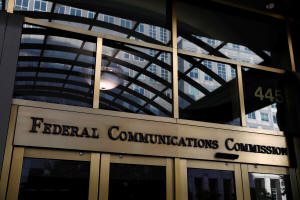|
The
FCC voted to require post-mission disposal of low-Earth orbit
satellites within five years. The agency previously recommended
operators of satellites in low-Earth orbit ensure spacecraft
re-enter Earth’s atmosphere within 25 years.
"It will mean more accountability and less risk of collisions
that increase orbital debris and the likelihood of space
communication failures," FCC Chair Jessica Rosenworcel said.
The U.S. telecommunications regulator noted that of 10,000
satellites deployed since 1957 more than half are no longer
working.
"Defunct satellites, discarded rocket cores, and other debris
now fill the space environment, creating challenges for current
and future missions," the FCC said, noting there are more than
4,800 satellites operating in orbit as of the end of last year,
and the vast majority of those are commercial low-Earth orbit
satellites.
"The second space age is here. For it to continue to grow, we
need to do more to clean up after ourselves so space innovation
can continue to respond," Rosenworcel said.
NASA has funded several academic studies on space debris, and a
bipartisan group of senators has introduced legislation "to
jumpstart the development of debris removal technology in the
United States," FCC Commissioner Geoffrey Starks noted.
He said the new rule "will bend the curve of debris
proliferation. It also will reduce collisions and free up
resources that would otherwise go toward trying to avoid them."
Starks warned that "without a safe operating environment, debris
risk could escalate from a financial afterthought to a hazard
that makes investors think twice, and could complicate
operations in a way that slows or limits new space endeavors
while driving up per-mission costs."
(Reporting by David Shepardson; Editing by Hugh Lawson)
[© 2022 Thomson Reuters. All rights
reserved.]
This material may not be published,
broadcast, rewritten or redistributed.
Thompson Reuters is solely responsible for this content.

|
|




